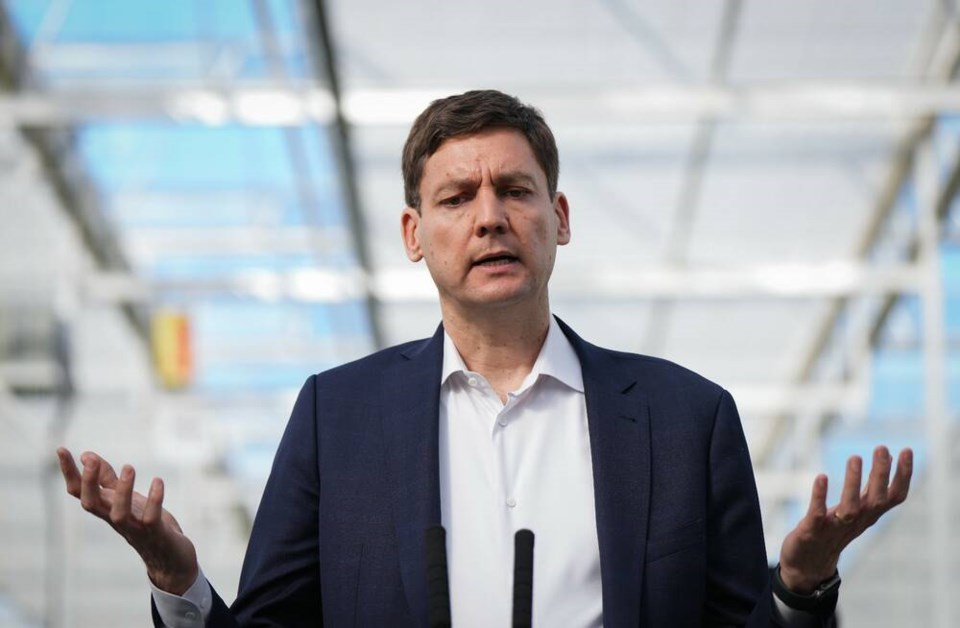While politicians debated the wreckage of B.C.’s drug decriminalization experiment Monday, traipsing through the background of the “pilot project” gives a clue to where it went wrong.
There was a huge amount of work that went into the province’s formal request to the federal minister of health to decriminalize. Ottawa spent months assessing it, and the approval in 2022 was a comprehensive document, as was its letter of requirements as to how B.C. was expected to manage decriminalization.
But in all that work product, there is scant mention of the specific problem that forced Premier David Eby’s retreat on Friday. That is: The uncontrolled, uncontrollable increase in public drug use that quickly accompanied decriminalization.
The obvious focus of concern was saving the lives of drug users. It was about destigmatizing addiction, shepherding addicted people into treatment rather than criminal courts and ending the catch and release charade that police and the courts have been running for years.
But widespread legal open use, with all the resulting alarming side effects, quickly became one of the dominant concerns. Very few members of the united front of politicians, health experts and police who advocated decriminalization seem to have seen it coming.
Eby said Monday the safety of the broader community is non-negotiable and is as important as the safety of those addicted to drugs.
But try to find that anywhere in the documentation
The actual approval of the request doesn’t explicitly mention public safety. The federal letter of requirements stressed a number of principles like ongoing engagement, increasing the health system’s capacity to treat users, and public engagement.
But it was mute on anything to do with protecting taxpayers from having to deal with people using drugs in public spaces. The section on law enforcement readiness urges B.C. to address vague “relevant concerns and risk mitigation,” without identifying any of them.
The letter states: “There are various tools available to address concerns and unintended consequences that arise.”
Whatever is in that toolbox, it remains unopened. Eby bolted and is now asking the federal government to suspend the major part of decriminalization.
He said Friday that the compassion for people who are struggling “does not mean that anything goes.”
So he wants public use of illicit drugs recriminalized. Use will only be condoned in private homes or treatment centres.
Eby said the unforeseen challenge was that when police tell people smoking toxic drugs in public places that it is not appropriate, “they aren’t able to back up that request with the authority that they need.
“It’s very clear in hindsight that those authorities should have been there.”
There will also be a crackdown on people now using dangerous drugs at will in hospitals, often through smoking, which puts everyone at risk.
Health Minister Adrian Dix said many more hospital security staff will be hired on top the 320 added in the last year, along with more health workers as needed.
People with addictions will still get the drugs they crave, but under medical supervision, he said.
Eby started Monday by telling reporters: “To the extent we can avoid politicizing this health crisis, the better off we’re going to be.”
Fat chance.
Opposition critics launched on him Monday following the retreat. The bigger problem is that decriminalization isn’t saving lives, they said. Last year set another record for overdose deaths, even with decriminalization in effect for 11 months.
BC United Leader Kevin Falcon said the NDP is asking for a band-aid to put on its self-inflicted policy disaster and the experiment should be abandoned. The opposition also upped the pressure to end the unwitnessed safe supply program, where some people with dependencies trusted to use drugs supplied by pharmacies are reselling or trading them on the black market.
A year ago Eby told the legislature: “If it’s not working the way we want it to, we won’t continue it.”
But he’s not living up to that assurance. His government is trying to amend a federal exemption to drug laws and carry on with the fragmentary remnants of what was first envisioned.
That will turn decriminalization into even more of a farce than it now is. It looks like pretending the pilot project is still flying is easier than admitting the government, the doctors and the police bought into an approach in desperation, without fully appreciating the huge downside.




